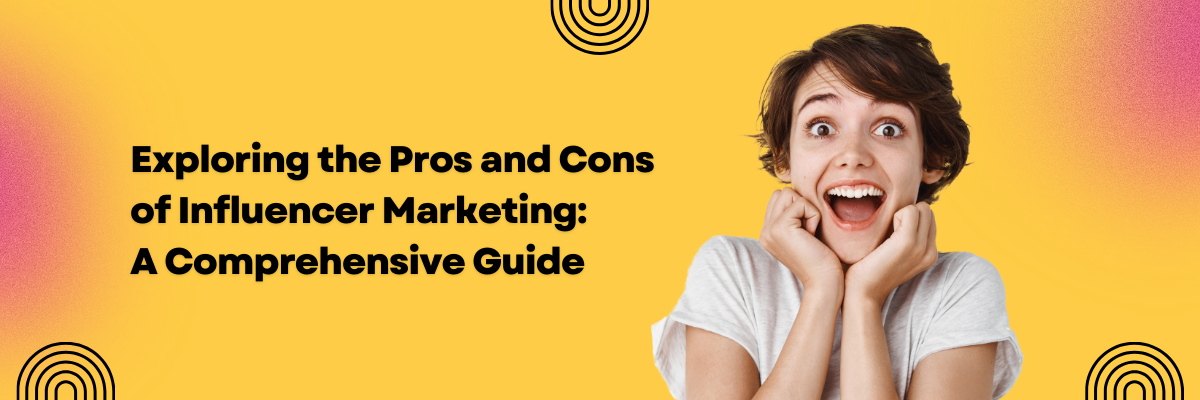

Exploring the Pros and Cons of Influencer Marketing: A Comprehensive Guide
In recent years, influencer marketing has emerged as a powerful strategy for brands to reach and engage with their target audience on social media platforms. By partnering with influencers who have a large and engaged following, brands can leverage their credibility and influence to promote products and services. However, like any marketing strategy, influencer marketing has its own set of pros and cons. In this blog post, we will explore both sides of the coin to help you make informed decisions about incorporating influencer marketing into your marketing mix.
Pros of Influencer Marketing:
- Increased Brand Awareness: Partnering with influencers allows brands to tap into their existing audience, increasing brand visibility and awareness among their followers.
- Authenticity and Credibility: Influencers are perceived as authentic and trustworthy sources of information by their followers. By endorsing products or services, influencers lend credibility to the brand and can influence purchase decisions.
- Targeted Reach: Influencers often have niche audiences with specific interests and demographics. Brands can collaborate with influencers whose followers align with their target market, ensuring their message reaches the right audience.
- Engagement and Interaction: Influencer content tends to generate high levels of engagement, including likes, comments, and shares. This interaction not only increases brand visibility but also fosters a sense of community and connection with the audience.
- Creative Content Opportunities: Influencer collaborations provide brands with access to unique and creative content that resonates with their target audience. This content can be repurposed across various marketing channels, maximizing its reach and impact.
Cons of Influencer Marketing:
- Cost: Collaborating with influencers can be expensive, especially for those with large followings or high engagement rates. Brands may need to allocate a significant portion of their marketing budget to influencer partnerships.
- Lack of Control: When partnering with influencers, brands relinquish some control over the content created and shared. There is a risk that influencer content may not align perfectly with the brand's message or values, potentially causing reputational damage.
- Authenticity Concerns: In some cases, influencer partnerships may come across as inauthentic or forced, leading to skepticism among the audience. Followers may perceive sponsored content as biased or insincere, diminishing its effectiveness.
- Measurement and ROI: Measuring the effectiveness of influencer marketing campaigns can be challenging. Unlike traditional advertising channels, influencer marketing ROI may be difficult to quantify, making it challenging to justify the investment.
- Saturation and Competition: The influencer marketing landscape is becoming increasingly crowded, with brands vying for the attention of the same influencers and audiences. As a result, it can be challenging for brands to stand out and differentiate themselves from competitors.
Conclusion:
Influencer marketing offers numerous benefits, including increased brand awareness, authenticity, targeted reach, engagement, and creative content opportunities. However, it also comes with its own set of challenges, including cost, lack of control, authenticity concerns, measurement difficulties, and saturation.
Ultimately, the success of influencer marketing depends on careful planning, strategic partnerships, and ongoing evaluation. By weighing the pros and cons and developing a well-executed influencer marketing strategy, brands can harness the power of influencers to achieve their marketing objectives and connect with their target audience in meaningful ways. We at Sarvaswa digital help you achieve your goal of creating a successful brand image.
```
